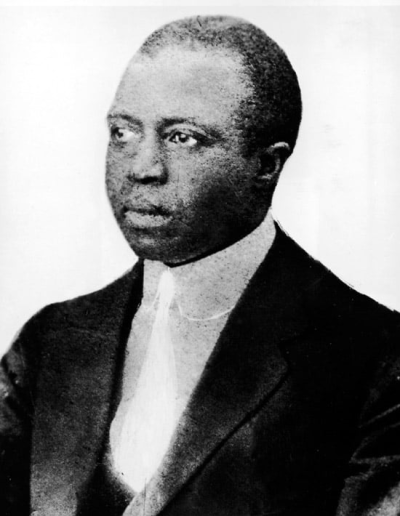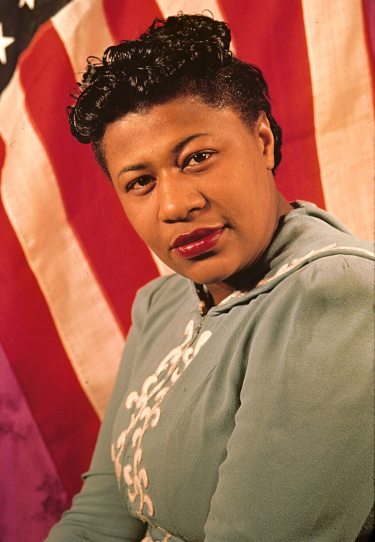.
.
For over twenty years, publishing quality jazz-themed fiction has been a mission of Jerry Jazz Musician. Hundreds of short stories have appeared on the pages of this website, most all of which can be accessed by clicking here.
A substantial number of novels and stories with jazz music as a component of the story have been published over the years, and the scholar David J. Rife has written short essay/reviews of them, which he has compiled in two valuable resources, Jazz Fiction: A History and Comprehensive Reader’s Guide (2008), and a recently published sequel, Jazz Fiction: Take Two. (Several of the stories published on Jerry Jazz Musician are reviewed).
Rife’s work is impressive and worth sharing with Jerry Jazz Musician readers. With his cooperation, essay/review excerpts from Take Two will be published on a regular basis.
.
In this edition, Rife writes about three novels that include stories about Scott Joplin, the primary forerunner and significant influencer of jazz.
.
.
___
.
.
.
…..Jazz Fiction: Take Two is the sequel to Jazz Fiction: A History and Comprehensive Reader’s Guide (2008). The earlier work filled a pressing need in jazz studies by identifying and discussing 700 works of fiction with a jazz component.
…..This work picks up where that one left off, around the turn of the 21st century, and surveys over 500 works of jazz-inflected fiction that have appeared since. None of these works, to my knowledge, have been discussed in this context.
…..The essay-reviews at the center of the book are designed to give readers a sense of the plots of the works in question and to characterize their debt to jazz. The entries were written with both the general reader and the scholar in mind and are intended to entertain as well as inform. This alone should qualify Jazz Fiction: Take Two as an unusual and useful reference resource.
.
-David J. Rife
.
.
___
.
.

Scott Joplin, 1912
.
___
.
.
Scott Joplin and Ragtime
….. The primary forerunner and significant influencer of jazz, ragtime was America’s most popular music of its short-lived day, the decade or so leading to WW1. It derived from minstrel-show tunes and was characterized by ragged, energetic syncopation. Pianist and composer Scott Joplin was widely regarded as the “King of Ragtime,” his most famous composition having sold over 75,000 copies of sheet music during its first year (1899). He returned to public consciousness over half a century after his death when his music provided the score for the blockbuster movie The Sting (1973).
.
.
___
.
..
…..
…..This is a researched narrative based on the lives and personalities of a collection of historical and fabricated characters from the ragtime era in American history, roughly 1895-1929. It succeeds in generating a sense of the phenomenal popularity and controversy surrounding this exciting new entertainment and provides several rousing dance hall scenes. Early on, a white claims to have invented rag after observing a long-neck fiddle player from the Cumberland Mountains who “had a real interesting way of breaking up rhythms.” Just add some soul and you’ve got the essence of ragtime. Black folks, of course, took a different view. “Ragging is our invention,” one of them said; “that rhythm comes straight from Africa . . . Straight from the Black man’s soul.” Such discrepancies underscore the abiding theme of racial politics in America. Another important motif concerns the plight of women. Pampered young rich girl May Convery yearns for some meaning in her privileged life. She dreams of becoming a poet. When the poor but talented (and partly Jewish) Mike Bernard becomes her piano teacher, she falls immediately in love with him. When she becomes pregnant, her patrician father and fiancé intervene—thus impelling the friction that persists for decades. As May’s and Mike’s lives intersect over the years, he becomes arguably the most successful ragtimer in the land, while leading a very messy life, and she finds at least some meaning in the suffragette movement. When jazz comes along to supplant ragtime, Mike’s gift of spontaneity is ready for the challenge. Unfortunately, his day has come and gone. The fact that Mike’s and the author’s last names are identical lends poignancy to the novel.
.
_____
.
.
…..
…..Phoenix Small is a 24-year-old R&B singer whose first two albums fell short of winning her the audience—and thus of course the wealth and fame—she had hoped for, so she signs with a major record company for the marketing it can provide. Indeed, a good part of this long novel provides a realistic depiction of the cut-throat machinations of the LA music industry. As Phoenix struggles with her career, she is joined (inhabited?) by the ghost of the King of Ragtime, Scott Joplin, whose own musical career was tragically thwarted—by racism and syphilis among other factors. Through their “relationship,” both artists grow in self-knowledge and self-worth. In one poignant passage, Phoenix consoles her companion by cataloguing a long list of Black musical giants like Miles Davis, Duke Ellington, and Ella Fitzgerald whose careers were in some measure indebted to Joplin. The realism of this ghost story is nicely enhanced when, at one point, Joplin asks Phoenix whether he is insane or she is real and she answers in the affirmative to both questions.
.
.
_____
.
.
…..…..
…..Scott Joplin—the King of Ragtime—is racing the clock: he’s dying fast and desperate to provide for his wife and to leave his mark on musical history. He’s depressed that his work has been widely regarded as low-class—an embarrassment to his race. He thinks he can set things right by creating a work of art that will allow him to stand proudly next to the great classical composers of the past. He believes he has such a work but knows he must find a publishing agency for it to succeed. When he is finally able to make an appointment for a publisher to look over his manuscript, the partner who takes the score is killed, casting suspicion on Joplin. Joplin thought he was delivering his work to a man he despised, the white King of Ragtime, Irving Berlin. Joplin despised Berlin because he was convinced that Berlin had stolen his composition “Alexander’s Ragtime Band” several years ago and profited from it mightily in a way that no Black man could have. In the maelstrom of events surrounding the murder, Joplin’s opus major goes missing, leading Joplin to suspect that Berlin is trying to rip him off, again. Thus begins a complicated mystery of mistaken identity, oblique motivation, cooked books, and racial politics.
…..The King of Ragtime is a thoroughly researched historical crime story that nicely captures the milieu of the music business in 1916 New York, at the cultural moment when ragtime was about to relinquish its popularity to jazz. The antagonists, Joplin and Berlin, are deftly drawn, and so are several other, non-historical characters. After the mystery is solved and the survivors have gone on their way, the author appends a final chapter outlining the later lives of the historical personages of the novel (“Where Are They Now?”). And, finally, he follows this with a substantial bibliography relating to the musical scene in New York shortly before the advent of the “Jazz Age.”
.
.
_____
.
.
Click here to read previous editions of excerpts from David J. Rife’s Jazz Fiction: Take Two
.
.
Click here to read “Not From Around Here,” Jeff Dingler’s winning story in the 66th Jerry Jazz Musician Short Fiction Contest
Click here to read more short fiction published on Jerry Jazz Musician
Click here to read The Sunday Poem
Click here for information about how to submit your poetry or short fiction
Click here for details about the upcoming 67th Jerry Jazz Musician Short Fiction Contest
Click here to subscribe to the Jerry Jazz Musician quarterly newsletter (it’s free)
.
Click here to help support the continuing publication of Jerry Jazz Musician, and to keep it ad and commercial-free (thank you!)
.
.
___
.
.
Jerry Jazz Musician…human produced (and AI-free) since 1999
.
.
.







































